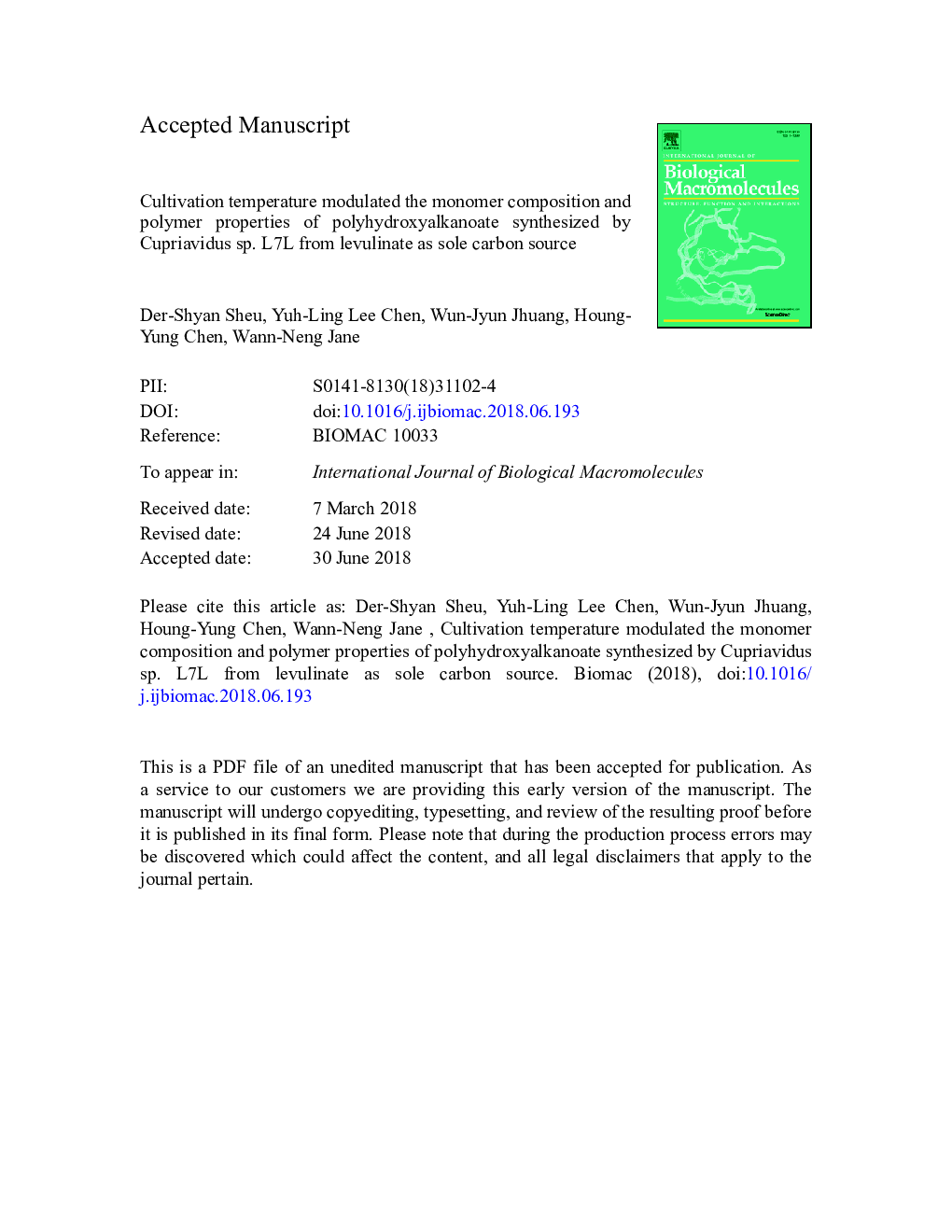| Article ID | Journal | Published Year | Pages | File Type |
|---|---|---|---|---|
| 10156849 | International Journal of Biological Macromolecules | 2018 | 37 Pages |
Abstract
Cupriavidus sp. L7L, a newly isolated wild-type soil bacterium, was found to synthesize polyhydroxyalkanoate (PHA) terpolymers from levulinic acid (LA), a top bio-based platform chemical, as the sole carbon source. NMR spectra showed that the terpolymers consisted mainly of 3-hydroxybutyrate (3HB), 3-hydroxyvalerate (3HV), and a small amount (2.1-4.8â¯mol%) of 4-hydroxyvalerate (4HV). The combination of monomers together with high molecular weights improved markedly the thermal and mechanical properties of the terpolymers. Increasing cultivation temperature of Cupriavidus sp. L7L increased the proportions of 3HB and decreased the proportions of 3HV. A fed-batch fermentation using LA as the sole carbon source without pH control produced a biomass of 15.8â¯dryâ¯weightâ¯gâ¯Lâ1 that contained 81 dry weight% of a terpolymer P(3HB-co-33.7â¯mol% 3HV-co-2.1â¯mol% 4HV), equaling a productivity of 0.213â¯gâ¯PHAâ¯Lâ1â¯hâ1. The terpolymer showed a melting point of 92 °C and elongation at break of 630%, compared to 84.6â¯Â°C and 462%, respectively, for the copolymer P(3HB-co-35.9â¯mol% 3HV) that contained no 4HV. This study showed that Cupriavidus sp. L7L exhibited a great potential for producing PHA polymers with excellent mechanical property that could be modulated by cultivation temperature when cultivated exclusively in LA.
Related Topics
Life Sciences
Biochemistry, Genetics and Molecular Biology
Biochemistry
Authors
Der-Shyan Sheu, Yuh-Ling Lee Chen, Wun-Jyun Jhuang, Houng-Yung Chen, Wann-Neng Jane,
